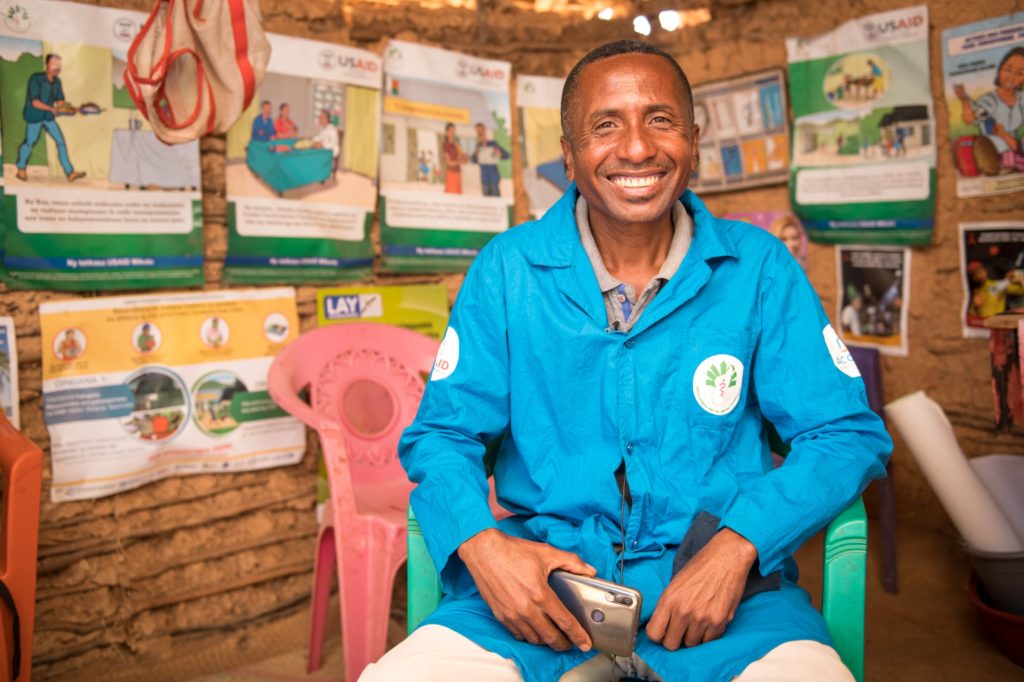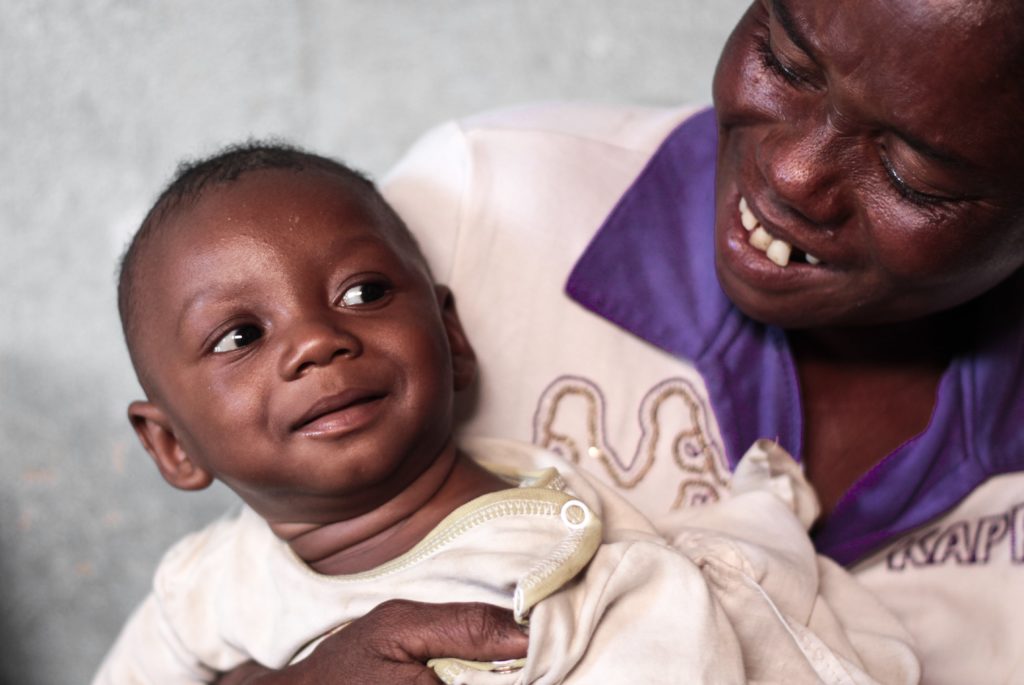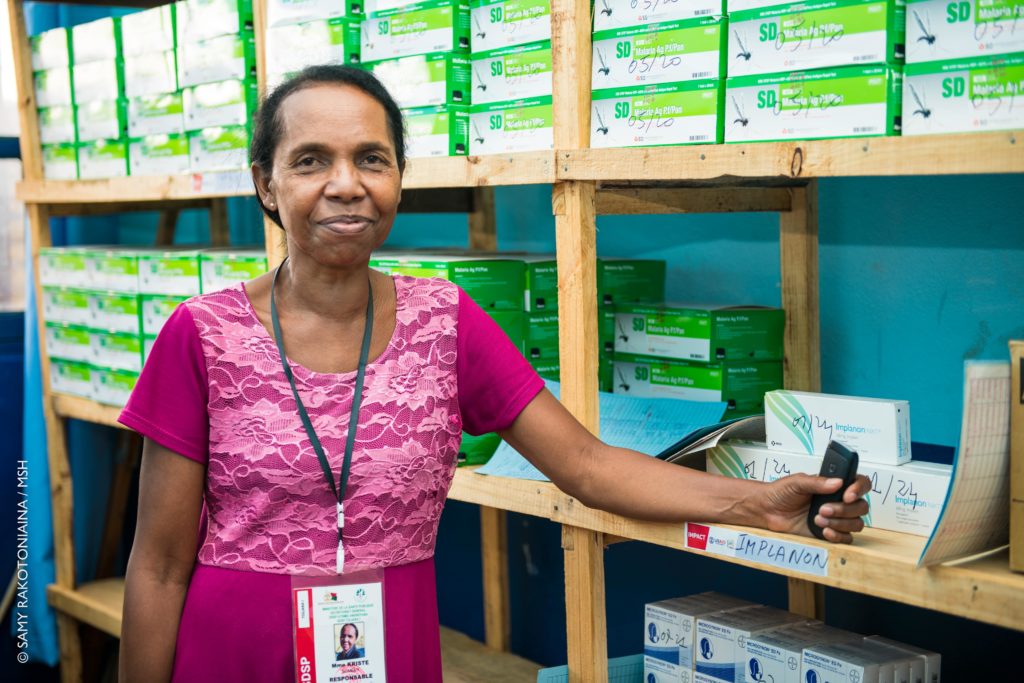Madagascar
Madagascar
Since 1983, we have worked in Madagascar to improve equitable access to high-impact, evidence-based health services. Our programs support the Ministry of Public Health at the national, regional, and district levels to strengthen the continuum of care for improved maternal, newborn, and child health and family planning. Our work helps ensure that health workers and community health volunteers can deliver quality care in facilities and villages across the country.
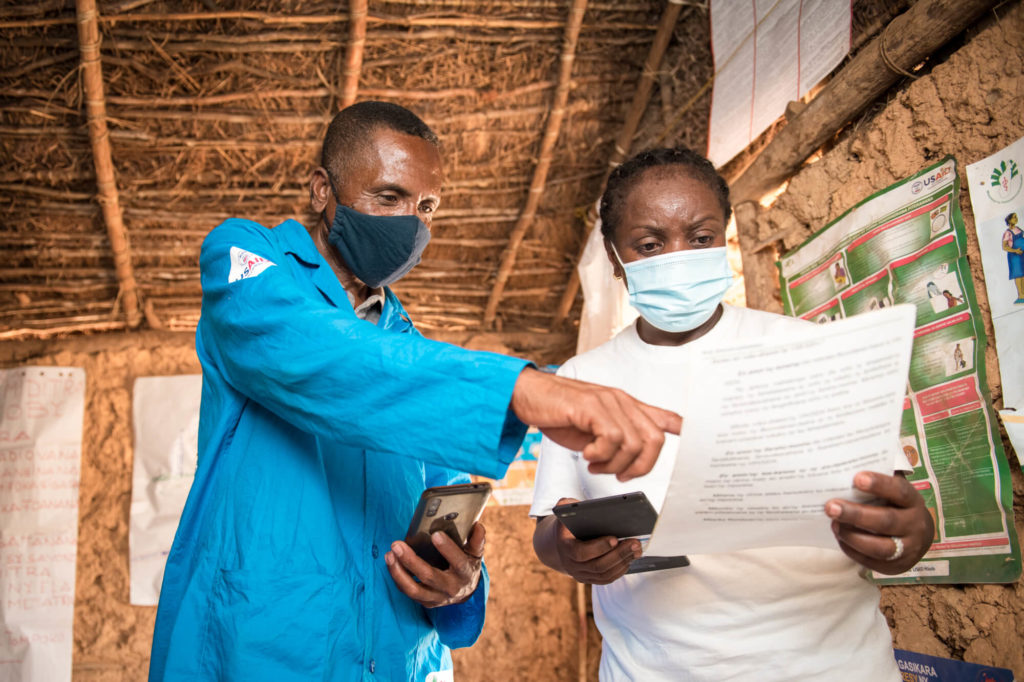
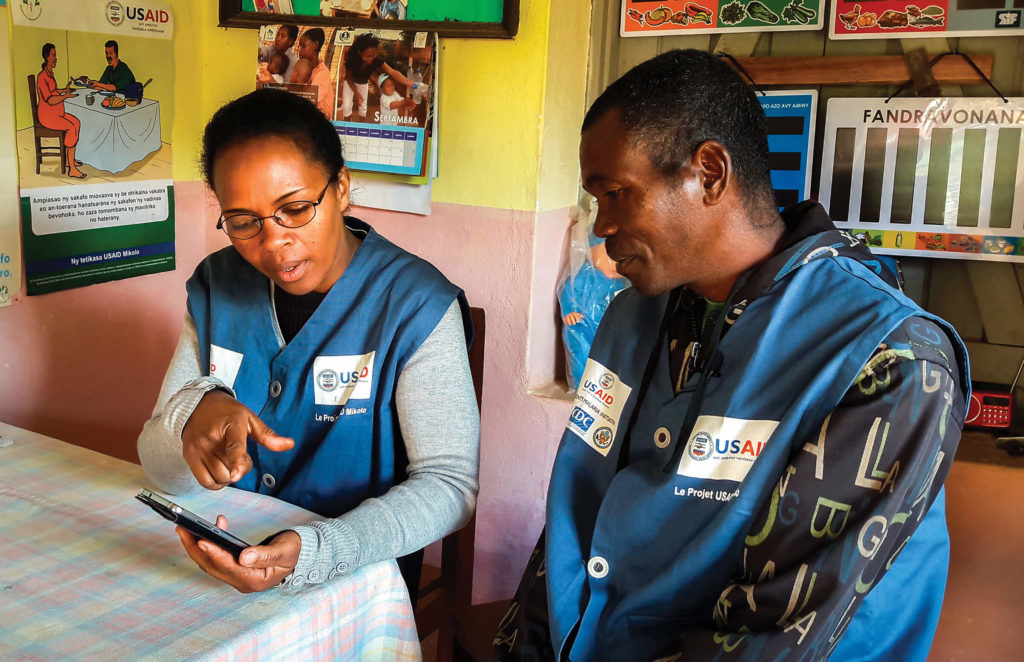
mHealth in Madagascar
Providing community health volunteers with mobile technology improves their ability to deliver quality health care. In Madagascar, what began as a pilot to guide community health volunteers through app-based malaria counseling and case management, has now been scaled up to more than 4,000 community health volunteers in 10 regions. The use of the app has helped keep malaria services accessible and reliable, despite the COVID-19 health crisis.
Overview
We support the Government of Madagascar as it works to reduce maternal, infant, and child morbidity and mortality by increasing access to quality integrated health care services and medicines and promoting the adoption of healthy behaviors. Our programs have supported community health volunteers, helping them gain the skills and tools to raise awareness of healthy behaviors, monitor child growth, provide family planning and counseling services, treat common illnesses, and help respond to infectious disease outbreaks. Our work has helped build leadership, management, and governance skills and enable a culture of quality data collection and use within each district, ensuring harmonization of health data across community and national systems. In collaboration with partners, we are strengthening Madagascar’s health supply chain and increasing cost efficiency while enabling the health system to harness private-sector contributions, including those from retail pharmaceutical outlets.
Meet the Community Health Volunteers Who Are Improving Access to Care in Madagascar
Community health volunteers (CHVs) play a critical role in bringing primary health care services closer to people, particularly women and children under the age of five. The USAID-funded ACCESS program supports more than 20,000 CHVs across 14 of Madagascar’s 23 regions. Meet five of them in this photo/video essay.
MSH in Madagascar
We support the Government of Madagascar as it works to reduce maternal, infant, and child morbidity and mortality by increasing access to quality integrated health care services and medicines and promoting the adoption of healthy behaviors.
Job Opportunities in Madagascar
Join us as we help solve the world’s public health challenges through innovation, dedication, and technical excellence. We are looking for talented, passionate people to join us—as employees, consultants, and interns—in advancing our mission to save lives and improve the health of the world’s poorest and most vulnerable people.

